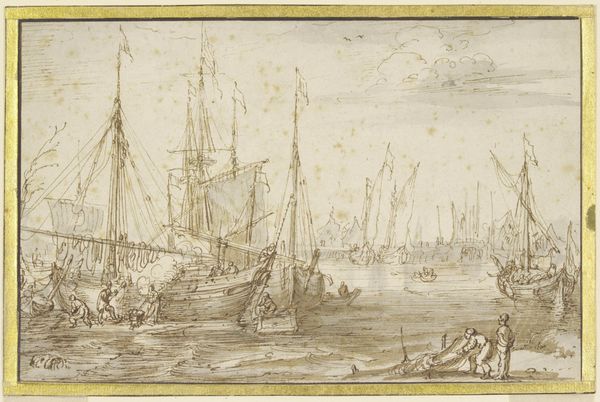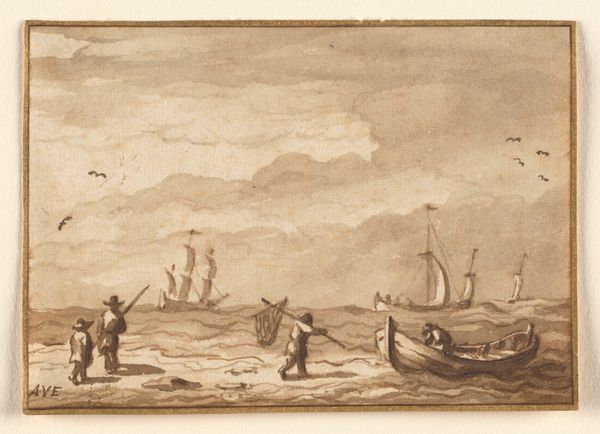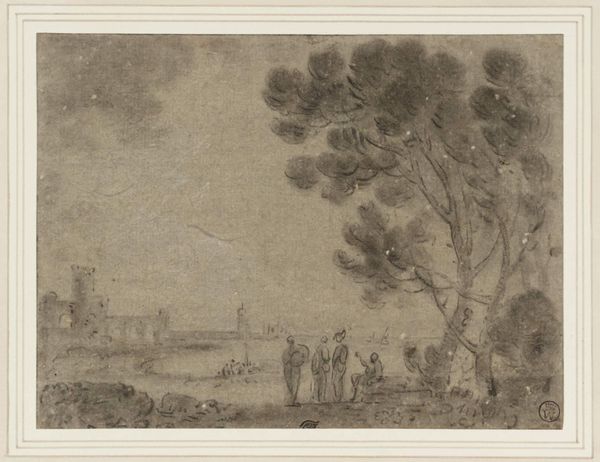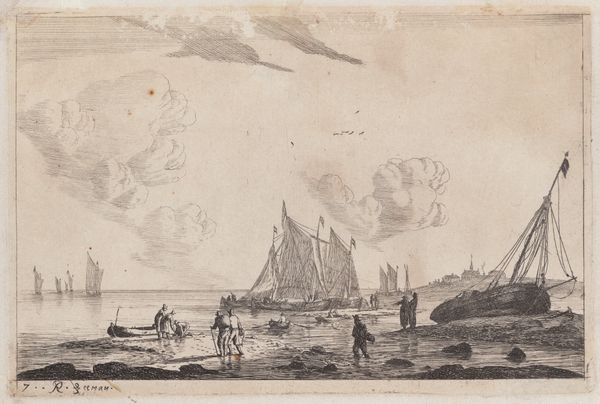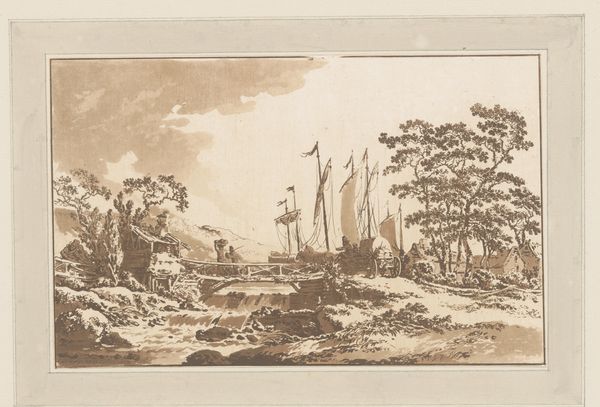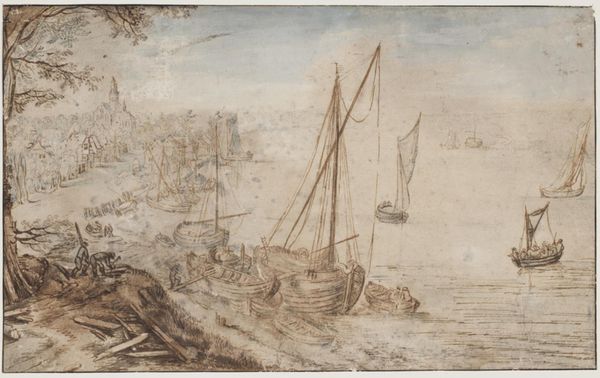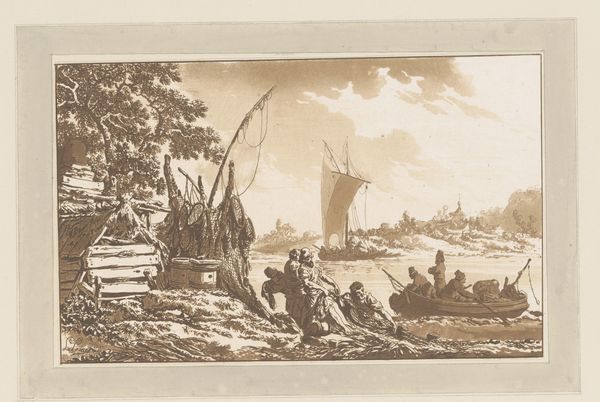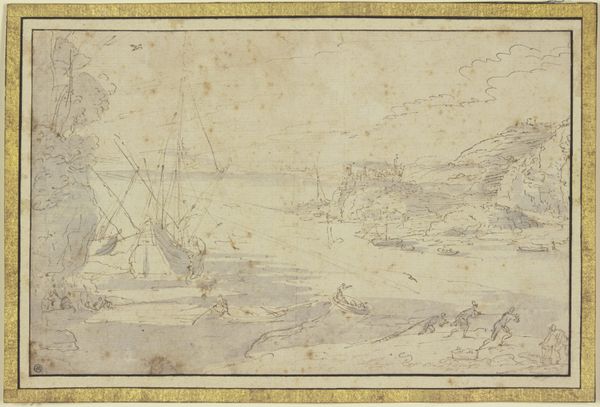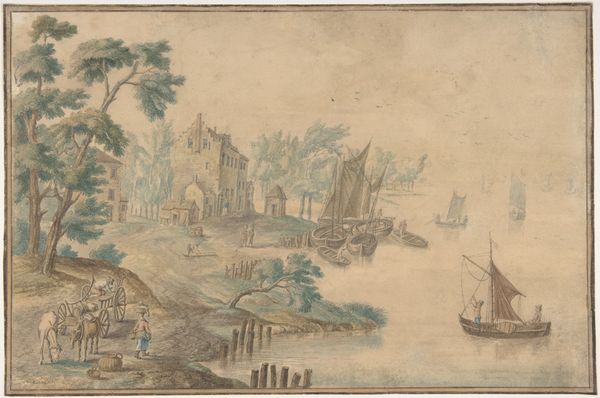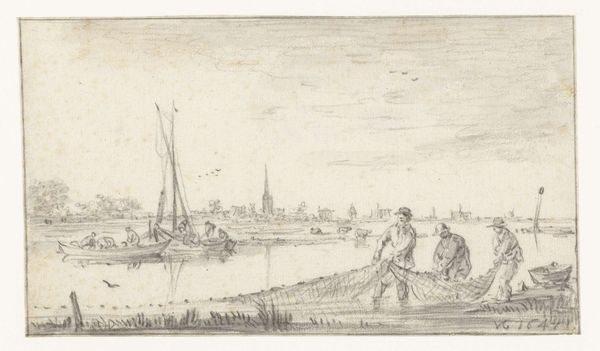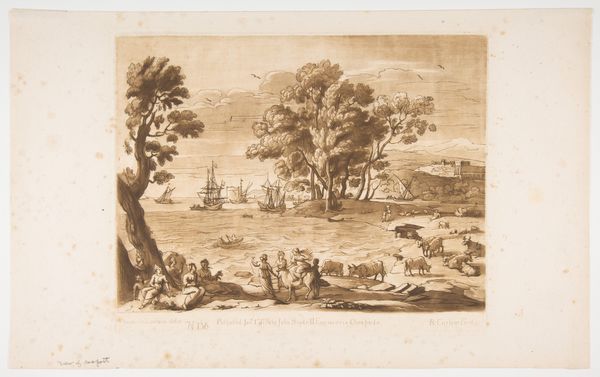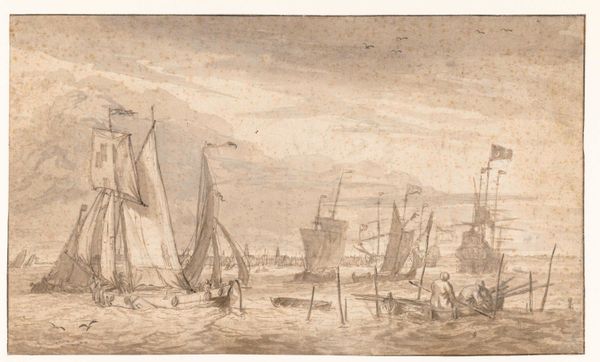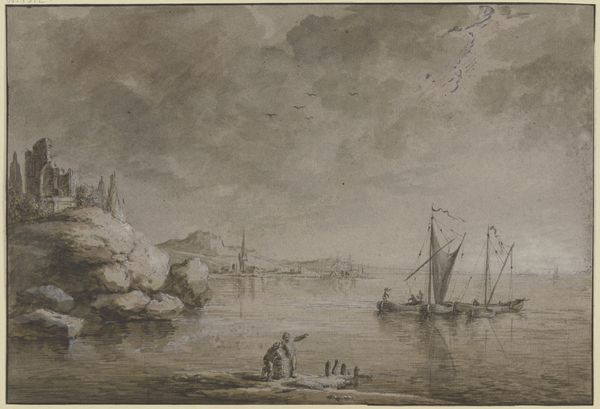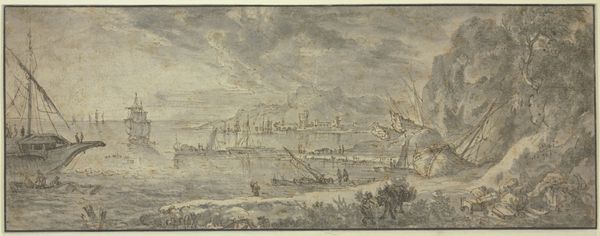
drawing, print
drawing
toned paper
light earthy tone
possibly oil pastel
carved into stone
earthy tone
underpainting
watercolour bleed
mixed medium
mixed media
watercolor
Dimensions: Height: 10 7/8 in. (27.7 cm) Width: 14 in. (35.5 cm) Frame: 14 1/2 × 17 3/4 in. (36.8 × 45.1 cm)
Copyright: Public Domain
Editor: Here we have Claude Lorrain's "Coast Scene with a View of Civitavecchia," created around 1638. It looks like a drawing, probably ink, on toned paper. The sepia tones give it such a serene, almost melancholic mood. How do you interpret this work in its historical context? Curator: Lorrain’s landscapes were highly influential in shaping our vision of the classical past, but let's think about this specific scene of Civitavecchia. It presents a somewhat idealized view of a working port. What's absent, wouldn't you say? Editor: Hmmm… dirt and grime? Chaos? Curator: Exactly! Lorrain presents a carefully constructed, almost theatrical view. He caters to the tastes of his aristocratic patrons. Think about the social role of landscape painting in the 17th century. These images functioned as status symbols, associating their owners with the grandeur of Italy and, by extension, with classical learning and taste. He wasn't just representing the scene, but subtly reshaping it. How do you think this impacted the broader perception of landscape art at that time? Editor: So, instead of pure representation, he elevated it, gave it cultural and political weight. Did this influence how future artists were perceived and promoted, or landscape painting collected, after this? Curator: Absolutely. Lorrain helped pave the way for landscape to be considered as important, intellectual, and highly sought after, affecting everything from the art market to museum collecting priorities. It made landscape more than pretty scenery; it was about power, history, and cultural capital. What do you make of the framing of the scene by figures and boats, is this choice meaningful to you? Editor: It all adds up, now that you explained. Thanks. Curator: My pleasure. Considering those artistic choices, the next time we view this kind of artwork, perhaps we'll question the context around its presentation too!
Comments
No comments
Be the first to comment and join the conversation on the ultimate creative platform.
